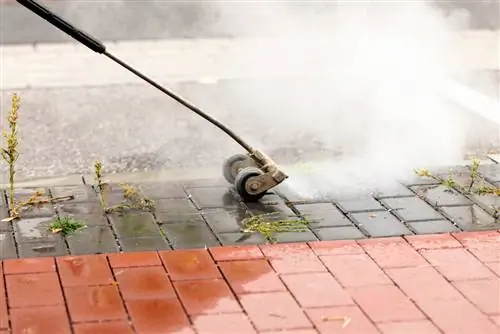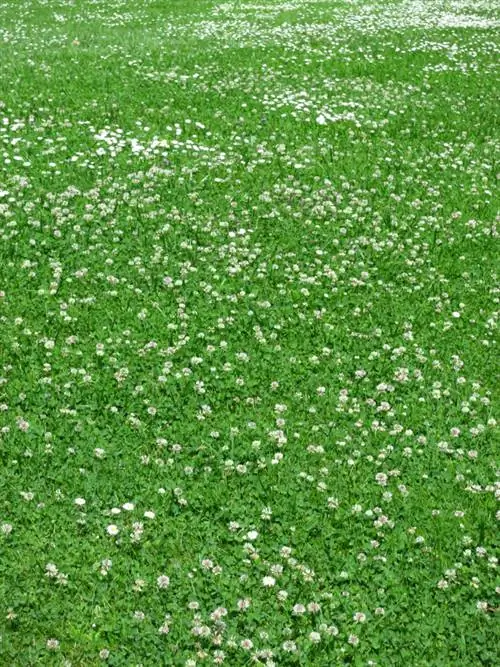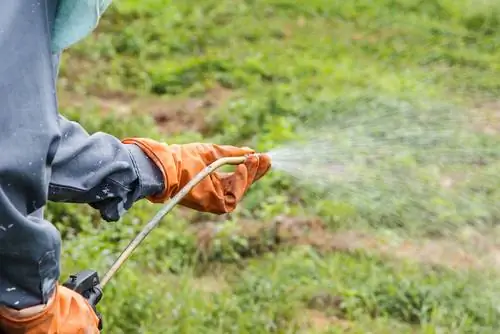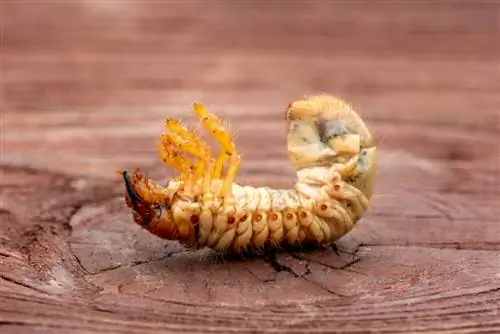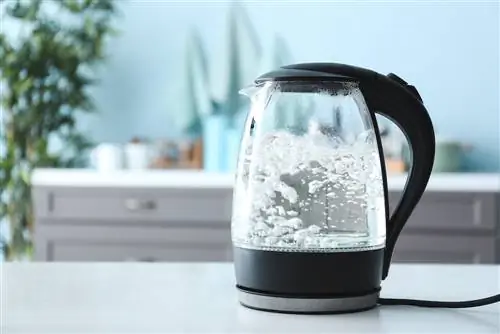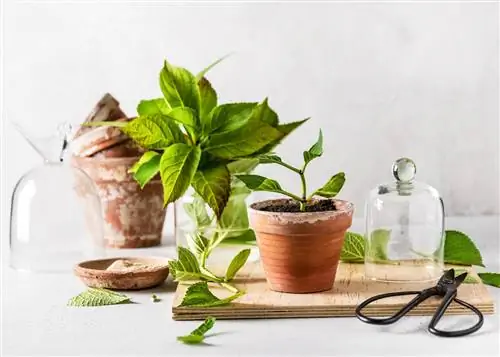- Author admin leonars@hobbygardeners.com.
- Public 2023-12-16 16:46.
- Last modified 2025-01-23 11:22.
There are many ways you can tackle weeds without using chemicals. The most well-known and at the same time least harmful agent is boiling water. You can find out in this article why this works so well and why it can compete with herbicides.
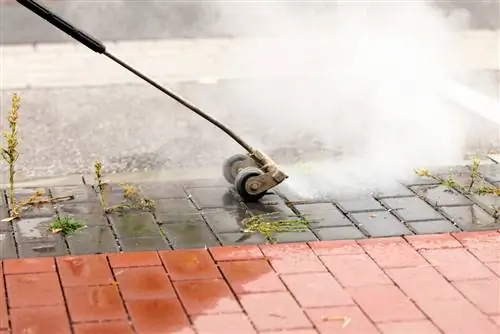
How to remove weeds with hot water?
Hot water removes weeds by destroying plant cell structure and damaging roots. Pour hot water (not boiling) evenly over the weeds without touching adjacent plants. This method is environmentally friendly and effective, but less suitable for large areas.
How does hot water work?
- The boiling liquid destroys the cell structure on the leaves of the plants. Photosynthesis can no longer take place.
- The hot water also penetrates the soil and damages the roots. The plant can no longer absorb water and dries up.
Prepare hot water to save energy
Bring the liquid to the required temperature in a standard kettle. If you want to save energy, you can simply use potato water or collect the hot pasta water and pour it over the weeds.
How is the boiling water used?
The liquid no longer needs to be boiling, but should be well warm. Pour this over the greens in a thin stream. All parts of the plant must be wetted evenly and for about ten seconds.
So that plants growing nearby are not accidentally damaged, you should ensure that they do not come into contact with the hot liquid.
What advantages does this method have and are there any disadvantages?
Boiling water helps very well against stubborn weeds. It works:
- uncomplicated,
- fast and effective,
- without the use of chemicals and therefore ecologically harmless.
But there are also disadvantages:
- Water and energy consumption would be too high on large areas.
- The soil bacteria in the immediate vicinity can die.
- Surfaces can be affected by the hot liquid.
Tip
Boiling water is very suitable for destroying weeds that have settled in the joints of the paving stones. However, the material can be damaged by the heat. If you are unsure how robust the surface is, you should first test the method on a leftover stone.

